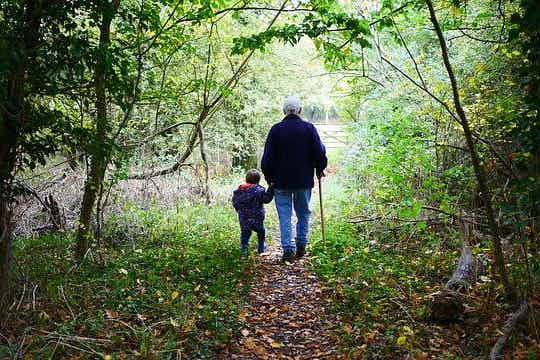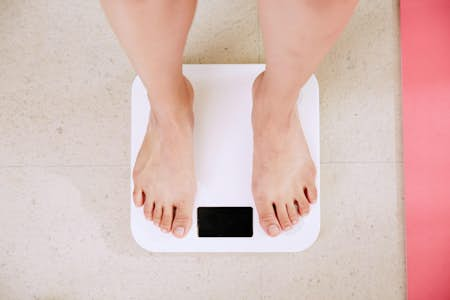The UK is currently in the midst of the most incredible vaccination drive in its history. All adults can now get vaccinated against Covid-19. But what about those younger than 18?
Will children get the Covid-19 vaccine?
In some circumstances, children have already received the covid vaccination. Pfizer-BioNTech is currently administering its vaccine to children under 12 as part of a study with a minimum age requirement of six months. But if it goes well, they will evaluate whether it is effective and safe for infants under six months of age.
This demonstrates that children will probably be offered the chance to be vaccinated soon, which was not guaranteed when the vaccine program was first rolled out. But why are children treated differently from adults?
Why are children different?
There are several reasons children are being treated differently from adults; some are based on scientific reasoning, and some are practical issues.
Children need parental consent
This shouldn’t make too much difference to uptake numbers, but it is another barrier. If a parent is anti-vaccine, then a child will not have the option of deciding whether they want one or not. This can also slow down the process of recruiting volunteers for studies.
It is easier to decide on your own health and safety; making decisions that can affect a child's health can be more difficult. Luckily, the British public has had incredibly high uptake numbers for vaccines.
Studies show the UK population has a high percentage of confidence in the vaccine.
The risk of covid-19 causing ill health is lower in children
The vaccination program was designed to prioritise those most at risk of death and work its way down to those least at risk. Children without any health complications are by far at the lowest risk of hospitalisation and death.
This goes against the grain when it comes to emergencies. The priority is usually to save the children first, demonstrating just how low the risk is for children.
The risk/reward ratio is different
Considering the risk/reward ratio is essential when making any decisions. Let's take an everyday example.
When you cross a road at traffic lights to get to work, there is minimal risk a car will run the red lights and hit you. That risk could be 0.0001%, but it is still a higher risk than if you had stayed at home. However, the reward is high. You cannot reach your job without crossing that road and face disciplinary action if you miss work.
Plus, you don't get paid!
There is minimal risk for decent reward in this example, making it a sensible choice to cross the road. If you were to run across the road with your eyes closed, the reward would still be the same, but the risk would be much higher. This would fail the risk/reward test.
It’s the same thing with most actions we perform. But even more so when it comes to medical decisions.
While the risk of dangerous side effects from vaccines is low, there certainly appears to be a higher risk of an adverse reaction in younger people who get vaccinated.
Studies show people aged over 56 were much less likely to have an adverse reaction to the AstraZeneca vaccine than people under 56, with the risk increasing as it went down the age groups.
Combine this with a much lower risk of hospitalisation or death from getting Covid-19, and there is a small yet significant difference in the risk/reward ratio. That being said, the risk/reward ratio still favours vaccination. Still, it is understandably a much lower priority than people who are over 18.
Which vaccine will be administered to 16-18-year-olds?
The Pfizer BioNTech vaccine has been approved for those 16 or older. In contrast, the AstraZeneca vaccine has been approved for use on people who are over 18. Currently, people under 40 are being offered the Pfizer vaccine rather than the AstraZeneca.
This is due to a slight risk of blood clots in younger people who take the AstraZeneca vaccine. Moderna vaccines are now being rolled out and are being offered to people aged 18-29.
Which vaccine will be administered to under 16s?
Currently, the UK has not been vaccinating under-16s, so there isn't an obvious answer to this. In Canada, they have started to vaccinate 12-15-year-olds with the Pfizer vaccine. It is also the most tested vaccine on children. This is the most likely vaccine under-16s will receive in the UK.
According to the Medicines and Healthcare products Regulatory Agency (MHRA), the Pfizer vaccine is safe for 12-15-year-olds.
“Over 2000 children aged 12-15 years were studied as part of the randomised, placebo-controlled clinical trials. There were no cases of COVID-19 from 7 days after the second dose in the vaccinated group, compared with 16 cases in the placebo group. In addition, data on neutralising antibodies showed the vaccine working at the same level as seen in adults aged 16-25 years. These are extremely positive results.”
-Professor Sir Munir Pirmohamed, Chair of the Commission on Human Medicines (source)
The Moderna vaccine has been found to be highly effective in 12-17-year-olds, so expect that vaccine to be used as well.
When will 16-18-year-olds be vaccinated?
Some 16-18-year-olds with underlying medical conditions will have already been vaccinated, as they were prioritised at the start of the vaccine rollout. 18-year-olds can book a vaccination, but there is no set date for rolling vaccines out to 16-year-olds at the time of writing.
Should children be vaccinated against Covid?
There are many issues around giving children the vaccine. Is it safe? Is it worthwhile? Another question is whether the vaccines could be better used elsewhere. If that sounds callous, it really shouldn't. Children under 16 years of age are unlikely to suffer severe effects of Covid-19. Dedicating many vaccines to younger age groups when there are still many adults in the UK who are not fully protected may be unwise.
Then there is the question about foreign aid. There are millions of vulnerable people in other countries who have no access to vaccines. The UK-first approach from the government is entirely understandable. Still, if the government starts vaccinating 12-year-olds, there may be an outcry that this is too far.
- The argument against vaccinating children is that they are unlikely to suffer from the effects of Covid-19. There is a slight risk of side effects from the vaccine, and there are logistical difficulties.
- The argument for vaccinating children is that it could protect them from future variants that may be more dangerous. The virus is constantly mutating, and each mutation varies in its transmissibility and danger. Vaccinating children now may help protect them if things get worse. Children may suffer from long Covid, too.
The government will have to decide, but as trials are finding the vaccine is safe for young children, parents and guardians will likely have the option to have their children vaccinated soon.
The British Medical Journal predicts that there will be a covid vaccine rollout for children in Autumn 2021.
“To include children in the vaccination programme is essentially a question of their role in transmission of the virus. They do not usually have severe disease manifestations, with a few exceptions, usually related to comorbidities. The more adults we can protect with the vaccines the less the vaccination of children would matter. However, to achieve as much suppression of viral circulation and to get to community immunity which can then suppress transmission and evolution of new variants, it could be justified,”
-Beate Kampmann, director of the London School of Hygiene and Tropical Medicine’s vaccine centre (source).
As Beate Kampmann says above, one of the biggest reasons to vaccinate children is to prevent the spread of Covid-19 among adults. If the vaccine can be proven to be perfectly safe, this makes sense.
Sure, there may be a reluctance among parents to vaccinate their children unnecessarily. But if it means they can take their children to see family and friends without worrying about infections, many will see the benefits.
Will children get vaccinated against Covid? Final thoughts
It's tough to predict the outcome to this. Still, at the moment, the most likely answer is that children will be vaccinated eventually. They are the lowest priority at the moment, but if the speed of vaccinations stays the same, it is likely children will begin to be vaccinated in the autumn.
This could possibly be done in schools, which is where many vaccination programs have occurred in the past. However, some are calling for children to be vaccinated during the summer before schools return. The Pfizer and Moderna vaccines appear to be the most likely vaccines to be used, as the AstraZeneca vaccine has a slightly higher risk of causing blood clots in young people. Parental consent will be required for each child, and this rollout could be a lot slower than others. However, having all children in school may mean vaccines can be given quicker.






